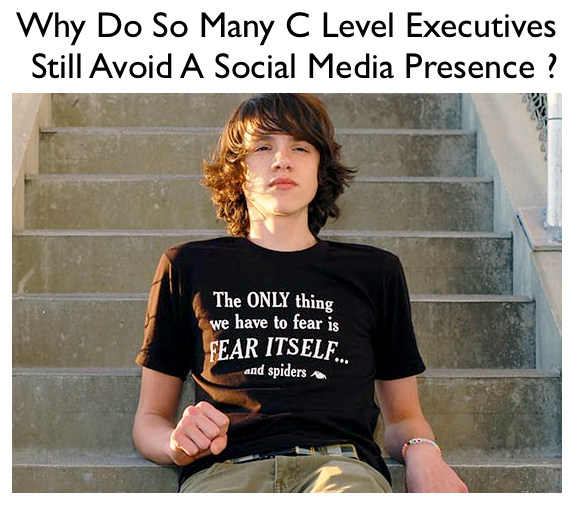Why Are Many Executives Still Avoiding A Social Media Presence ?
/
In a recent Club Industry post "Equinox President One Of Many Executives Taking On Twitter", Stuart Goldman correctly identified several leaders in the health club business who are active on twitter. Here is an excerpt:
News of Sarah Robb O’Hagan leaving Gatorade to become the first president of Equinox leaked last Wednesday night on Twitter. When that news was officially announced the next day, several people on Twitter sent congratulatory tweets to Robb O’Hagan. And, in the days since the announcement, Robb O’Hagan (aka @SarahRobbOh) has personally sent several responses. Interaction on Twitter from fitness club industry executives is becoming a growing trend. Earlier this summer during the Olympics, 24 Hour Fitness President and CEO Carl Liebert (@C3hoosier) sent out tweets and posted several retweets from London. Anytime Fitness CEO Chuck Runyon (@ChuckRunyon), an active Twitter user, responded to Twitter followers during and after his appearance on ABC’s “Secret Millionaire.” Recently, EvanCarmichael.com ranked Snap Fitness CEO Peter Taunton (@PeterTaunton) No. 27 on a list of Top 100 franchising experts to follow on Twitter. Twitter can be a source for personal news as well. Late Tuesday night, RetroFitness CEO Eric Casaburi (@ECRETRO) chose Twitter to announce the birth of his son, Andrew Robert, No. 4 in the Casaburi clan.
Kudos to the executives Stuart mentions for their leadership. In our company Fitmarc, CEO @Robertjdyer is a very active user of social media as am I and our entire company. Yet so many, particularly in the C Suite, are still avoiding having a presence and often even an adequately managed brand presence in social media. In fact this lack of participation by CEO's is even noticable in many other industries.
Ryan Holmes, CEO of Hootsuite, wrote a recent Fast Company article The $1.3 Trillion Price Of Not Tweeting At Work which substantiates the relatively low use of social media by executives. Even Larry Ellison, CEO of Oracle, a technology company mind you, hardly ever tweets! In fact, among CEOs of the world’s Fortune 500 companies, a mere 20 have Twitter accounts. Amazing. Ryan's article points to a new report from McKinsey Global Institute. According to an analysis of 4,200 companies by the business consulting giant, social technologies stand to unlock from $900 billion to $1.3 trillion in value. At the high end, that approaches Australia’s annual GDP. The McKinsey analysis isn't the only recent report that should raise some eyebrows.
IBM's recent report , Leading Through Connections, was based on interviews with over 1,700 leaders in 64 countries . According to the report only 16 percent of the CEO's participated in social media. The study reveals that social media is currently the least-utilized method for connecting with an audience. Today the hierarchy of connecting with customers still follows an old-school formula with first being face-to-face, followed by websites, channel partners, call centers, traditional media, advisory groups, and finally social media. However, social connecting will surge to over 57 percent within the next 5 years. I'd say it will be a greater percentage and faster than that.
So why the avoidance ? Fear in my opinion is the key driver and in four ways:
Fear of the Unknown - Ignorance isn't the enemy of progress but the illusion of knowledge is. Many Non-Millennial executives just don’t get it, or refuse to even consider social media. They sure aren’t going to let some young up and comer tell them what to do or how to use social media either;
Fear of Change - Apathy and stagnation go hand in hand. For many executives, social media seems like a lot of work and they're busy enough already. Taking on a new project let alone a whole new paradigm is just something they avoid;
Fear of Technology - As the world embraces all things digital at exponential rates, many execs feel like they understand less and less about the underpinnings of their business; and
Fear of Transparency - Being on social media as a C level executive means the world has access to you. This includes customers, suppliers, the media and others. Being accountable publicly is a scary thing for many executives.
So tell me, BryanO'Rourke, what do you think about executives using social media ? Is fear the key barrier to its use ? I'd love to hear your thoughts. Thanks for reading and if you like the article please share it on Facebook, Twitter or your other social networks.








